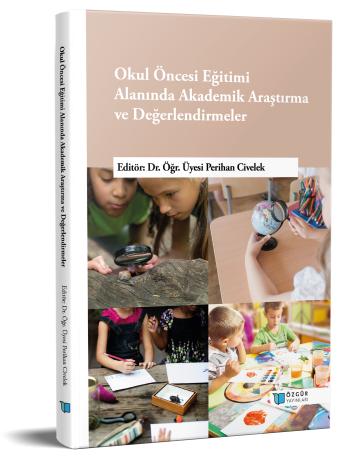
Freinet Approach in Preschool Education
Chapter from the book:
Civelek,
P.
(ed.)
2025.
Academic Research and Evaluations in the Field of Preschool Education.
Synopsis
The aim of this study is to analyze Célestin Freinet's pedagogy, which emerged as an alternative educational approach in the 20th century, in the context of preschool education. Freinet's pedagogical thought has made important contributions to the way learning takes place. Before the emergence of schools, people learned through observation and repetition. However, when children stepped into school, this learning style was replaced by traditional education. According to Freinet, students learn by seeking answers to their questions and solving the problems they need to address. In such a context, knowledge serves as a response to one's curiosity and acts as a strong source of intrinsic motivation. Freinet's methods emphasize experiential learning, collaboration, and active student participation, integrating education with real-life experiences from early childhood onwards. In this research, the historical foundations, principles, and techniques of Freinet pedagogy are examined, highlighting its differences from traditional educational models. Freinet argued that education is not merely the transmission of theoretical knowledge but that students should actively engage in acquiring knowledge. In this regard, he aimed to provide students with real-life experiences and developed methods to raise them as free and independent individuals. Fundamental methods such as the use of the printing press, free expression, and cooperative learning are analyzed in detail. Additionally, Freinet’s critiques of traditional education and how his pedagogy supports creativity based on individuality, autonomous learning, and social solidarity are explored. The core principles of Freinet pedagogy include a democratic approach to education, students directing their own learning, and the encouragement of productivity in education. This study also discusses the place and applicability of Freinet pedagogy in today's education system. Particularly, the use of the Freinet approach at the preschool level is evaluated within the framework of some contemporary studies. In conclusion, Freinet pedagogy remains significant as a model that brings an innovative and libertarian perspective to education from early childhood onwards. It aims to transform children from mere consumers of knowledge into critical thinkers, productive individuals, collaborators, and active participants in learning.

